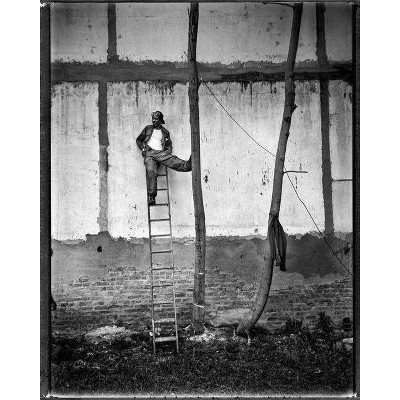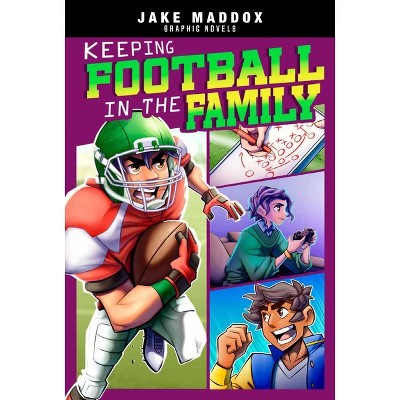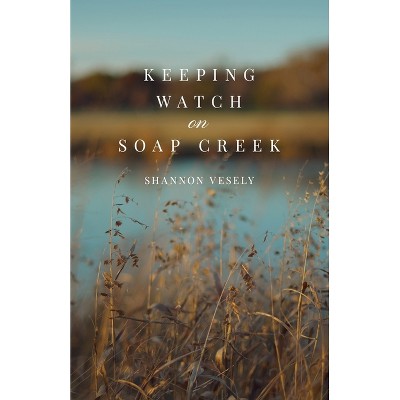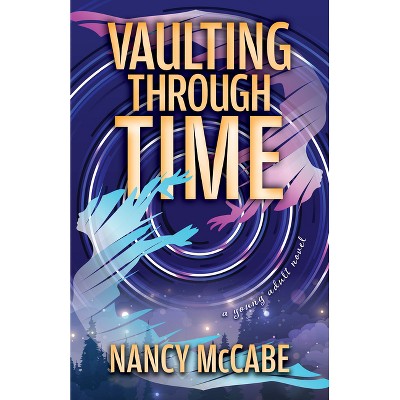Sponsored

Making, Keeping, and Losing Friends - by Janice M McCabe
New at target
$25.00
Out of Stock
Eligible for registries and wish lists
Sponsored
About this item
Highlights
- Draws attention to the importance of support networks for students as they make, keep, and lose friends throughout college and beyond.
- Author(s): Janice M McCabe
- 288 Pages
- Education, Philosophy, Theory & Social Aspects
Description
About the Book
"There's no question that college is a unique time to forge lifelong bonds with friends. At no other time in life is one surrounded by hundreds, if not thousands, of age peers pursuing similar goals in an environment structured to build relationships. College students sit beside potential friends in class, walk to and from activities in groups, live in residential colleges, and cross paths in dining halls, student organizations, and libraries. But are these frequent moments of contact the same as meaningful connections? Which features of friendships keep us feeling lonely and which help us feel supported? How do different aspects of college life help or hinder students' ability to form meaningful connections? This new book from Janice M. McCabe traces how students make, keep, and lose friends on three different types of college campuses-a small elite private college (Dartmouth College), a large public university (University of New Hampshire), and a non-residential community college (Manchester Community College)-focusing especially on how institutional structures affect friendships. Colleges themselves play a big part in whether or not students ultimately form meaningful friendships. Across Dartmouth, UNH, and MCC, friendship networks are patterned in ways that are shaped by institutional features of the colleges that students attend as well as by students' identities. McCabe notes that at all three types of institutions, students experience an initial and then a secondary friendship market. While friendships from the initial market-think orientation or the freshman dorm-do not always last, those made in the secondary market-such as in affinity groups and activities students join later on-are usually formed through shared interests or identity. That said, regularity of contact depends on a school's support, such as funding for groups or reliable access to campus spaces. Across these institutions, contact with peers is in no short supply. But meaningful friendships require periods of prolonged connection with a peer with similar interests. The loneliness epidemic on college campuses is less the problems individual students have making friends and more about the structure of their networks, the structure of the institutions they attend, and how their identities matter in each of these places"--Book Synopsis
Draws attention to the importance of support networks for students as they make, keep, and lose friends throughout college and beyond. We're all familiar with the sentiment that "college is the best time of your life." Along with a newfound sense of freedom, students have a unique opportunity to forge lifelong friendships at a point in life when friendship is particularly important. Why is it, then, that so many college students are falling victim to what the US Surgeon General termed an "epidemic of loneliness and isolation"? How do different aspects of college life help or hinder students' ability to form deep connections? In Making, Keeping, and Losing Friends: How Campuses Shape College Students' Networks, sociologist Janice M. McCabe shows that the way a college is structured--whether students live in dorms or commute, study abroad or stay close to campus, have plentiful common areas for clubs to meet or not--can either encourage or hinder the making of meaningful friendships. Based on interviews with 95 students on three distinct campuses--a small private college (Dartmouth College), a large public university (University of New Hampshire), and a non-residential community college (Manchester Community College)--McCabe captures a wide range of experiences and discovers how features of the campuses make it easier or harder for students to make and keep friends. She shows how and why, across all three institutions, some students thrive in deep and lasting friendships with their peers. As McCabe's research reveals, we need to look at the structures of students' networks, the institutions they attend, and the importance of their identities in these places if we are to truly uncover and address the loneliness epidemic facing today's young adults.Review Quotes
"In the best tradition of sociological analysis, McCabe shows how the organization of college life in three distinct colleges helps, or impedes, students from making and keeping friends. It is surprising to learn how students are "lonely" at times, and the ways in which they regroup to make friends. The book will be of interest to a broad audience, including college administrators, college students, and social scientists. Recommended!"
--Annette Lareau, author of 'Listening to People: A Practical Guide to Interviewing, Participant Observation, Data Analysis, and Writing It All Up'
"McCabe's Making, Keeping, and Losing Friends is an essential resource for anyone looking to understand how college friendship networks operate. McCabe's book is meticulously researched, breathtakingly thorough, and deeply compassionate. If you're attending college, have a loved one enrolled in higher education, or work with young adults in the education space, Making, Keeping, and Losing Friends is a must-read." --Anna Goldfarb, author of 'Modern Friendship: How to Nurture Our Most Valued Connections'
"In an era of growing concern about an epidemic of loneliness among younger Americans, as Surgeon General Vivek Murthy has warned, McCabe's clearly written new book should find a ready audience. Comparing friendship networks among students at an elite private institution, a state university, and a community college, she shows how personal identity, network patterns, and institutional differences all contribute to (or inhibit) 'meaningful friendships' that enhance college students' academic success and personal happiness. Especially insightful is Professor McCabe's practical advice for students, their supporters (such as parents), and colleges, as well as other researchers."--Robert D. Putnam, author of 'The Upswing: How Americans Came Together a Century Ago and How We Can Do It Again'
Dimensions (Overall): 8.94 Inches (H) x 6.11 Inches (W) x .64 Inches (D)
Weight: .84 Pounds
Suggested Age: 22 Years and Up
Number of Pages: 288
Genre: Education
Sub-Genre: Philosophy, Theory & Social Aspects
Publisher: University of Chicago Press
Format: Paperback
Author: Janice M McCabe
Language: English
Street Date: October 21, 2025
TCIN: 1006060952
UPC: 9780226844176
Item Number (DPCI): 247-33-3860
Origin: Made in the USA or Imported
If the item details aren’t accurate or complete, we want to know about it.
Shipping details
Estimated ship dimensions: 0.64 inches length x 6.11 inches width x 8.94 inches height
Estimated ship weight: 0.84 pounds
We regret that this item cannot be shipped to PO Boxes.
This item cannot be shipped to the following locations: American Samoa (see also separate entry under AS), Guam (see also separate entry under GU), Northern Mariana Islands, Puerto Rico (see also separate entry under PR), United States Minor Outlying Islands, Virgin Islands, U.S., APO/FPO
Return details
This item can be returned to any Target store or Target.com.
This item must be returned within 90 days of the date it was purchased in store, shipped, delivered by a Shipt shopper, or made ready for pickup.
See the return policy for complete information.
Discover more options

$19.99
Buy 2, get 1 free select books
5 out of 5 stars with 4 ratings






